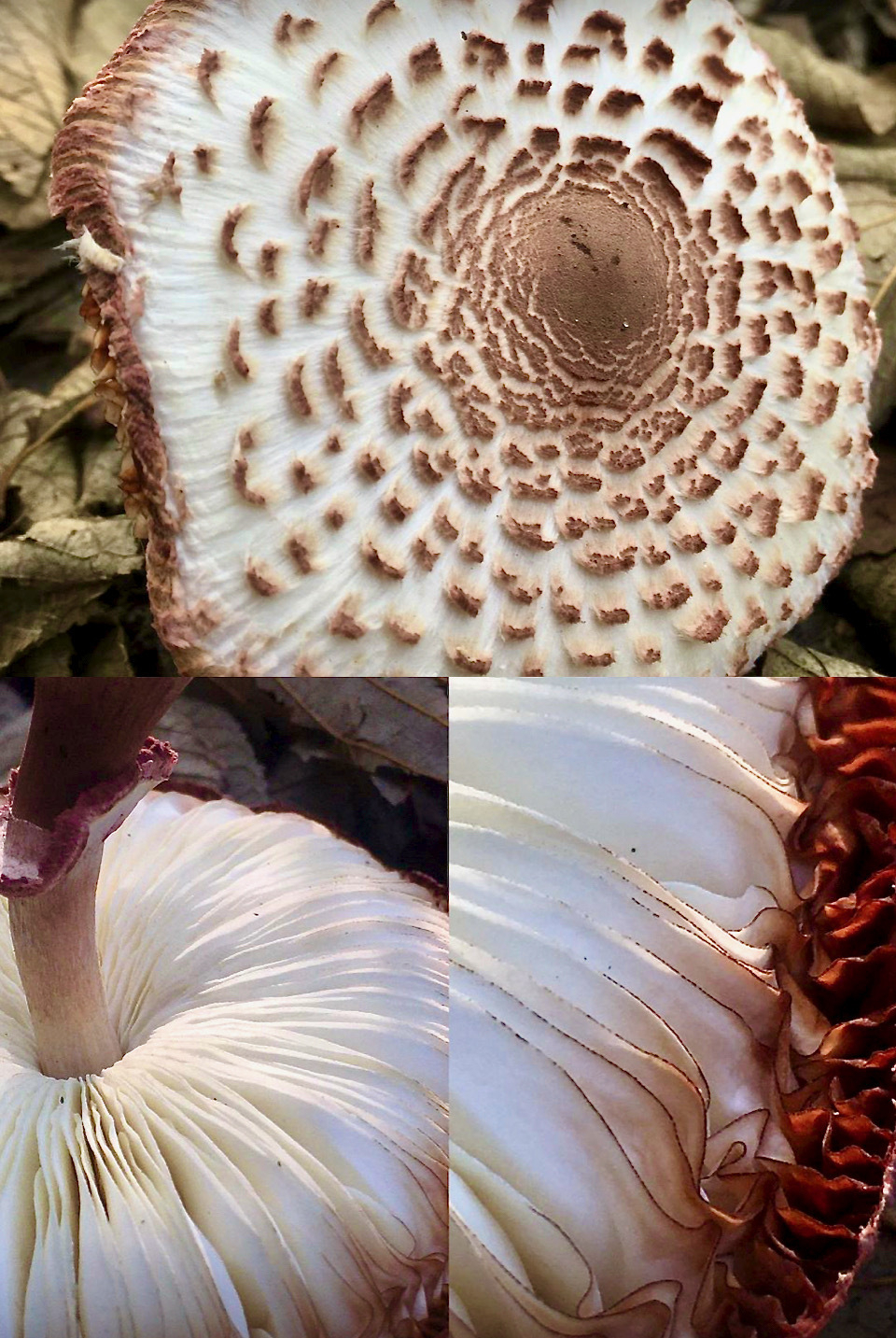15 October 2021
Istiqlál, 1 ‘Ilm (Knowledge), 178 B.E.
Seen
Burdock (Arctium) led to the discovery of velcro. Unfortunately, it’s an invasive species. My crop is in its rather benign first year of growth, but next year: “low growing rosette of basal leaves during the first year, but during the second year it becomes 3 to 6 feet tall”— oh, my!

Done
Dropped off another load of furniture, household goods and clothing to the Furniture Bank of Central Ohio / Downsize with a Heart / Furniture with a Heart Thrift Stores. YAY!
Noted
Astral Prospecting on Instagram: Mushroom Collage

Marc Bosserman on Instagram: Rave Reviews!
Today is the birthday of my good friend Billy Siegenfeld! Sending him best wishes for the day and year ahead for all the world to see. And if you don’t know about him and his work, check this out; and if you have young kids–like my granddaughter–there’s this!
Quoted
The beginning of a new millennium fills us with hope. On the one hand, it is a milestone, a birthday, so to speak, that reminds us that the world really is changing. Like a birthday, it invites us to reflect on our past, imagine a better future and rise to a new level of maturity. On the other hand, the “millennium” is a reminder of “The Millennium” promised in the Bible — a thousand years of peace and the coming of the Kingdom of God on Earth. The writings of the Bahá’í Faith invite us to bring these two visions of hope together. They put forth the argument that the Kingdom of God on Earth is not made of gold, pearls and gems, but is rather forged from the love, peace, and cooperation that is only possible when we demonstrate a level of collective maturity that was not possible in ages past. 1
[The Four Kinds of Love] 2
WHAT a power is love! It is the most wonderful, the greatest of all living powers.
Love gives life to the lifeless. Love lights a flame in the heart that is cold. Love brings hope to the hopeless and gladdens the hearts of the sorrowful.
In the world of existence there is indeed no greater power than the power of love. When the heart of man is aglow with the flame of love, he is ready to sacrifice all—even his life. In the Gospel it is said God is love.
There are four kinds of love. The first is the love that flows from God to man; it consists of the inexhaustible graces, the Divine effulgence and heavenly illumination. Through this love the world of being receives life. Through this love man is endowed with physical existence, until, through the breath of the Holy Spirit—this same love—he receives eternal life and becomes the image of the Living God. This love is the origin of all the love in the world of creation.
The second is the love that flows from man to God. This is faith, attraction to the Divine, enkindlement, progress, entrance into the Kingdom of God, receiving the Bounties of God, illumination with the lights of the Kingdom. This love is the origin of all philanthropy; this love causes the hearts of men to reflect the rays of the Sun of Reality. 3
The third is the love of God towards the Self or Identity of God. This is the transfiguration of His Beauty, the reflection of Himself in the mirror of His Creation. This is the reality of love, the Ancient Love, the Eternal Love. Through one ray of this Love all other love exists.
The fourth is the love of man for man. The love which exists between the hearts of believers is prompted by the ideal of the unity of spirits. This love is attained through the knowledge of God, so that men see the Divine Love reflected in the heart. Each sees in the other the Beauty of God reflected in the soul, and finding this point of similarity, they are attracted to one another in love. This love will make all men the waves of one sea, this love will make them all the stars of one heaven and the fruits of one tree. This love will bring the realization of true accord, the foundation of real unity.
My sister and brother-in-law recently relocated and chose to donate several books in their library rather than move them. Many of these volumes are not well-known, but due to the topics they cover and the manner in which their authors explore them, they warrant a nod of recognition before being sent on their way. Accordingly, most quotes referenced in the “Quoted” section come from these books. Maybe they will stir (or renew) your interest, too.
- St. Rain, Karen, and Justice St. Rain. Bahá’í Teachings for a New Millennium. 1st ed., Special Ideas, 1999, iii. [return]
- ʻAbduʼl-Bahá. Paris Talks: Addresses given by ʻAbduʼl-Bahá in Paris in 1911-1912. 11th British Ed. 1912. Reprint, London, England: Baháʼí Publishing Trust, 1972, 179-302. https://www.bahai.org/library/authoritative-texts/abdul-baha/paris-talks/7#508098000 [return]
- St. Rain, Karen, and Justice St. Rain. Bahá’í Teachings for a New Millennium. 1st ed., Special Ideas, 1999, 2-3. [return]